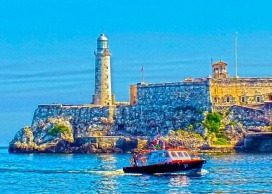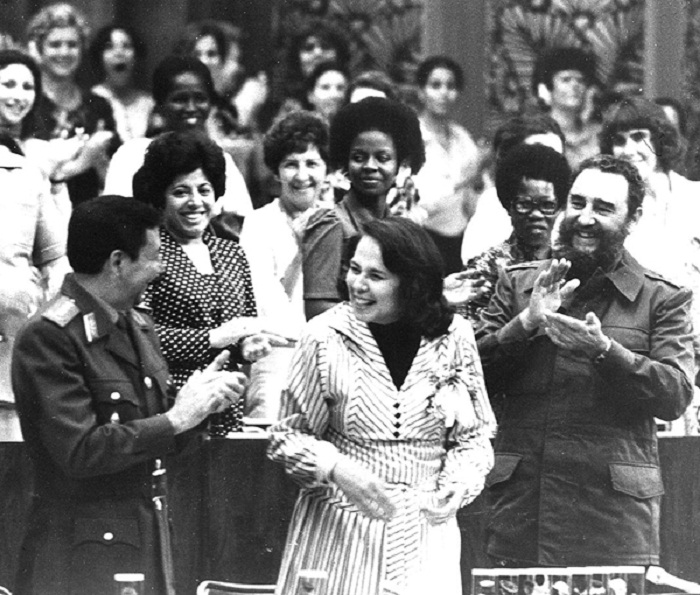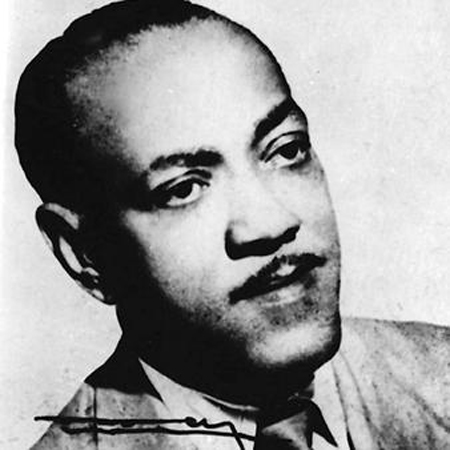
Havana ephemeris. September 27th.
1924. Ángel Adriano Rodríguez Bolaños was born in Guanabacoa.

He did his initial studies at the Academy of his hometown, and later at the Municipal Conservatory of Havana and at the Popular Music Seminar.
He developed an extensive and fruitful artistic career of almost seventy years, during which he was a singer equally capable of defending folklore, lyrical art and one of the great representatives of trova.
He was among the founders of the Union of Writers and Artists of Cuba, the Choir Festival, the Popular Music Festival and the Varadero International Festival. He received the National Music Award in 2013.
For his artistic work, he was awarded other recognitions, among them, the Distinction for National Culture, the Alejo Carpentier Medal, the Tropical Gitana and the Raúl Gómez García Medal.
He passed away in Havana on July 23, 2015.
1933. The ashes of Julio Antonio Mella arrive in Havana, brought from Mexico by a commission chaired by Juan Marinello.

This act was accompanied by a multitude of people, who saw in Mella a symbol of rebellion. Currently his ashes are deposited in a monument erected in front of the steps of the University of Havana.
1962. With the assistance of more than four thousand delegates, the first congress of the Federation of Cuban Women began in Havana.

The event was attended by more than four thousand delegates and was closed by the maximum leader of the Cuban Revolution, Fidel Castro.
1972. The popular Cuban singer Abelardo Barroso Dargeles dies in Havana.

Legendary interpreter of Cuban music, sonero of high value, among the most successful pieces of his artistic career are Un brujo en Guanabacoa and Hagan Juego, by Bienvenido Julián Gutiérrez; The Little Orphan, by Hermenegildo Cárdenas; The Guajiro of Cunagua, by Juana González; Shipwreck, by Agustín Lara; The kleptomaniac, by Agustín Acosta and Manuel Luna; Longina, by Manuel Corona; Brucamaniguá, by Arsenio Rodríguez and especially, his proclamation El panquelero.
He was born in Havana on September 21, 1905
1980. Commander in Chief Fidel Castro speaks before an impressive popular concentration gathered in the Plaza de la Revolución “José Martí”.

In one part of his words, Fidel pointed out: “It would be impossible to conceive the history of our Revolution without the CDRs. In the first place, because of the services they rendered in defense of the Revolution in the most difficult years, when the hostility of the enemy was greatest, when their plans of aggression, subversion and sabotage were more intense. That was, is and will be, I repeat, was, is and will be! the first task and the first duty of the Committees for the Defense of the Revolution”.
2007. The Museum of the Committees for the Defense of the Revolution is inaugurated in Old Havana.

This installation collects the history of the CDR since its foundation by Commander in Chief Fidel Castro on September 28, 1960.
This heritage is distributed in eight rooms: the first one recalls different historical events that preceded the triumph of the Cuban Revolution on January 1, 1959, as well as the popular confrontation with the counterrevolutionary actions aimed at destabilizing this great social project; in addition to the historical moment of the creation of the CDR.
In another of the spaces, the main tasks of the CDR members in a neighborhood are shown, in addition to the activities that they have carried out throughout the country in revolutionary vigilance, literacy and vaccination campaigns, the Mirage al mar detachments, the collection of raw materials, voluntary blood donations, volunteer work, environmental protection, and the battle of ideas.